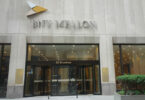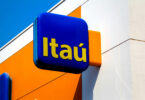This guest opinion article is contributed by EMURGO, a founding entity of the Cardano protocol that focuses on enterprise blockchain applications and other user solutions.
The current global pandemic has spotlighted the safety and quality of daily consumer products with more consumers staying at home and ordering items on the Internet.
Combined with other worldwide factors such as a rising population (especially in Asia), rapidly developing economies, and the proliferation of Internet-based services, consumers are more conscious about trusting the safety and quality of the products they purchase.
With many instances in the past of companies mislabeling or misrepresenting products or utilizing unhygienic storage methods, consumers are placing a premium on knowing what they are actually consuming and if it’s sustainably sourced.
Enterprises that are on top of this directional shift in consumer behavior have started to embrace blockchain technology as an effective digital solution that provides the absolute trust their Internet-savvy consumers demand.
Recently, Indonesian coffee companies Blue Korintji Coffee, NOKA, and Alko Sumatra Kopi (ALKO), have integrated a blockchain traceability solution to allow their customers to know the exact journey of their sustainably farmed, high quality Arabica coffee.
Indonesia: World’s fourth largest coffee producer
Asia has three out of the five most populous countries in the world and more than 60% of the world’s entire population.
Coffee is already very popular in several Asian countries and quickly gaining popularity in other Asian countries as a daily consumer product.
According to the World Bank, Indonesia ranks fourth largest in the world in population size and coffee production, representing a massive segment of the national economy.
These conditions along with rising incomes, and a young tech-savvy demographic familiar with social media, is contributing to the overall development of the local coffee industry.
However, there are some old challenges facing the industry.
Due to Indonesia’s geography, supply chain stakeholders are spread throughout the country, often hundreds or even thousands of kilometers away in remote locations.
Combined with the usage of outdated legacy administrative systems, it’s a challenge for coffee companies to trust their suppliers’ data as each stakeholder has incentives to use the data for their own best interest.
This lack of transparency and trust inhibits the coffee companies from confidently promoting the safety and quality of their own premium coffee to their consumers, and prevents them from adding value to their brand.
Using blockchain to track and trace from farm to cup
Looking for competitive advantages, a few Indonesian coffee companies have turned to blockchain technology to digitally track and trace their coffee beans in order to solve these challenges.
In a blockchain track and trace solution, relevant product data is displayed to all stakeholders in real-time through a mobile solution as the coffee makes its way through a supply chain.
Upon purchase, consumers are also able to scan a simple QR code using their smartphone to access the entire information behind their coffee, including harvesting, roasting, and shipment times and dates.
For coffee companies with a brand built upon a reputation for premium Arabica and specialty coffees, delivering verifiable trust to their customers is of the utmost importance, which blockchain-based solutions now provide at a low cost and in real-time.
Increasing worldwide demand for certified sustainable coffee
In the case of ALKO, they became one of the first enterprises to use blockchain for coffee traceability in Southeast Asia, with its founder becoming the go-to person for digital coffee traceability efforts in Indonesia.
Following the integration of EMURGO’s Trace Solution, ALKO expanded their coffee exporting countries by nearly 40% to a much wider global market, including the US, Japan, Malaysia, France, and China.
In addition, due to increased demand, ALKO was able to increase the prices of its sustainable coffee green beans by 12-18% and is on track to achieve its yearly export target of 350 tons of coffee beans.
By using a blockchain traceability solution, ALKO could also showcase their ethically sourced coffee beans from non-conservation areas. Their buyers can know the exact location of their coffee farms to verify that the beans have been ethically sourced.
For a boutique specialty coffee brand such as NOKA, having a blockchain traceability solution in place really speaks to their quality-conscious consumers and aids in social media marketing.
NOKA managed to create a unique brand perspective by promoting the traceability mobile app to their consumers at their big retail locations in Jakarta and Bandung and telling the true story behind their coffee products.
Consumers, in turn, have embraced the digital opportunity to trust the quality of their purchases and the ability to verify its sustainability.
NOKA has benefited from their consumers’ increased social media engagement as a result, with more consumers posting the QR code and traceability app into their social media channels.
Blockchain technology has given a win-win to coffee enterprises and consumers by delivering verifiable trust to both parties.






